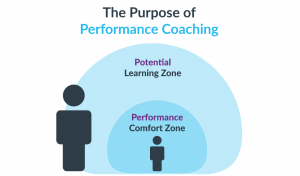Going back to work after a career break or maternity leave can be daunting. Thoughts of how to manage both work and home responsibilities could make you feel overwhelmed. Before going back to work, you will have made careful consideration of your priorities. Did you consider options such as flexible working and life or career coaching? The steps you take now is what will decide if going back to work will be a success for you.
According to a survey commissioned by New Ireland Assurance last year, 77% of women who are going back to work are concerned about work-life balance. 75% are anxious about childcare arrangements while working arrangements are a concern for just under half of these women (46%). By applying some simple strategies, you can overcome these concerns and make the most of going back to work.
1. Speak to your employer before going back to work
Meet with your employer before going back to work to talk through any concerns you have. Depending on the job, there might be ways your employer can support you. Your company will want to help you as much as they can. There are two key areas that are often highlighted by returning employees:
Remote working or flexible hours
Most companies now offer some form of remote working or flexitime options to employees which could free up valuable time. Average time spent on commuting to work in Dublin is nearly 1 hour. Imagine what you could do with that time. Working remotely one or two days a week could help you be more productive, as you won’t have to contend with distractions like colleagues popping by for a chat. That being said, many find it helpful to get out of the house and enjoy working from an office. If that’s you, you might have to weigh up the options to decide which one is more attractive for you.
Training and upskilling
To boost your confidence when going back to work, you should consider upskilling. To tackle the challenges that come with today’s fast-changing work environment, we need to adapt by staying relevant and making sure our skills are always on demand. Your manager can help identify and arrange any necessary training for you. A lot of exceptional training resources are now available online, so you can even start a course before going back to work. Springboard is a good example of an online training platform that keeps you up to speed in your learning.
These might be relevant to you, or you might be looking for something else entirely. Think about what will work for your situation.
2. Make technology work for you
Technology has simplified our lives, giving us constant access to information and each other. However, it can be intrusive, and we need to ensure that we don’t become too reliant on it.
Disconnect to reconnect
Make a habit of not checking your emails after a certain time in the evening and allow yourself to relax. Likewise, don’t allow phones at the dinner table, so everyone gets the most out of family time by being fully present.
Try leaving your phone at home when you go for a walk or run. Spend the time focusing on your breathing, the sensation you get as your feet hit the ground and taking in your surroundings. The run or walk will still count as exercise even if you haven’t tracked it on an app!
At the same time, are there ways in which you can better use technology to help you enjoy more balance? Podcasts offer a wonderful opportunity to explore topics that interest you or to learn something new. Similarly, there are many meditation apps like Headspace and Calm, that can help transform your mood and manage stress levels.
3. Know and communicate your boundaries
To start, think about what’s important to you right now. When we know what we value, we know what type of behaviour honours these values and what’s in conflict with them. For example, if you value dinner time with the kids, then you’ll do your utmost to ensure you’re home each night in time for this. If a colleague schedules a meeting for after hours, you can be clear that this time doesn’t work for you and instead offer alternatives. When you value and respect your own boundaries, others will too.
Say ‘no’ without feeling guilty
It can be hard to say no to a request, especially if you’ve been out of the workplace for some time, as you’ll want to prove that you’re as capable as ever. However, this approach is not sustainable and will only result in unnecessary stress and possible burnout in the long run. In her book, “The Burnout Solution“, Psychotherapist and Author Siobhán Murray say “Once you start learning to say no, you will reduce the stress and the likelihood of burnout.“
There’s no need to feel guilty about leaving the office on time to collect the kids or go to a gym class. Your circumstances and priorities have changed, and that’s ok. Of course, there will still be times when you need to work late, but as long as you know what your priorities are, you’ll find a way to make it work more often than not.
4. Put a value on your time
Some fascinating research carried out by Ashley Whillans, an Assistant Professor at Harvard Business School, reveals that “people who are willing to give up money to gain more free time — by, say, working fewer hours or paying to outsource disliked tasks — experience more fulfilling social relationships, more satisfying careers, and more joy, and overall, live happier lives.” So, if you’ve been considering hiring a cleaner to free up a couple of hours in your week, it seems you’ll get a lot more than a cleaner home in return.
Online grocery shopping is another way to save time. You can order your groceries online during your lunch hour and have them delivered when it suits you. This leaves you time for the more important things in life. More time to play with your children, finally finish that book you’ve had on your bedside locker for weeks, or just for doing nothing – and that’s ok.
5. Prioritise your health
To be able to give your best at work and at home, you need to be in good health. Putting yourself first in this way is not a luxury, but a necessity. There is a saying that “You can’t pour from an empty cup” and it’s right, you can’t. So let’s start filling your cup in the following ways:
Make healthier food choices
Every time we eat, we make a choice whether to eat food that nourishes and energises us or not. Make a deliberate effort to eat more fresh fruit and vegetables every day and less packaged, processed foods and refined sugars. To help you do this, carry fruit and nuts in your bag so that you’ll have something healthy to snack on that will keep you going throughout the day.
Drink plenty of water
Keep a water bottle in your car or on your desk and keep sipping. It will become a healthy habit in no time. Research has shown that even mild dehydration, with a body water loss of 1–2%, can impair cognitive performance.
Take sleep seriously
In his book, “Why We Sleep: The New Science of Sleep and Dreams” Professor Matthew Walker delves into the scientific research on the importance of sleep and the detrimental long term effects of poor sleep quality. Sleep is a core component of health so try to ensure you regularly get the recommended seven to eight hours a night. Sleepytime is a valuable app that allows you to calculate your sleep cycles so you can wake up feeling refreshed and rested.
Exercise regularly
Exercise does as much for our mental states as it does for our bodies. Research from the Primary Care Companion to The Journal of Clinical Psychiatry has shown that exercise improves mental health by reducing anxiety, depression, and negative mood and by improving self-esteem and cognitive function. So rather than being another demand on our time, regular exercise will actually help us to better manage and enjoy our working and personal lives. It’s a win-win situation.
6. Work-life balance is an ongoing process when going back to work
Work-life balance is different for everyone, and at any one time, there will be trade-offs. It will also change as you move through different life stages. When you were young, free and single, you might have spent more time at work. And as your priorities shift again, so too will the balance between work and home life. There is no perfect solution. It’s an ongoing, evolving process. But it’s how you approach it that makes all the difference.
7. Get support before going back to work
If you’re struggling, ask for help, please don’t suffer in silence. For example, if you have a partner and you’ve been doing all the home duties when you were at home, talk about how you will divide these in a fair way now that you’re both working. It’s important to avoid ending up with double the work when going back to work. Having a chat with a trusted colleague, mentor or friend who’s been there before can make all the difference. What worked for them?
Working with a life or career coach is another way to help you find a better work-life balance. By working with a coach, your values and priorities, both at home and at work, will become crystal clear. Together you’ll set goals in each area of your life and map out ways of achieving these. A coach will help you overcome any obstacles you may face along the way, stay on track and most importantly – enjoy the journey!
Learn more about how one of our expert coaches can help you achieve your goals when going back to work. Start shaping your future today – where, when and how you want.







